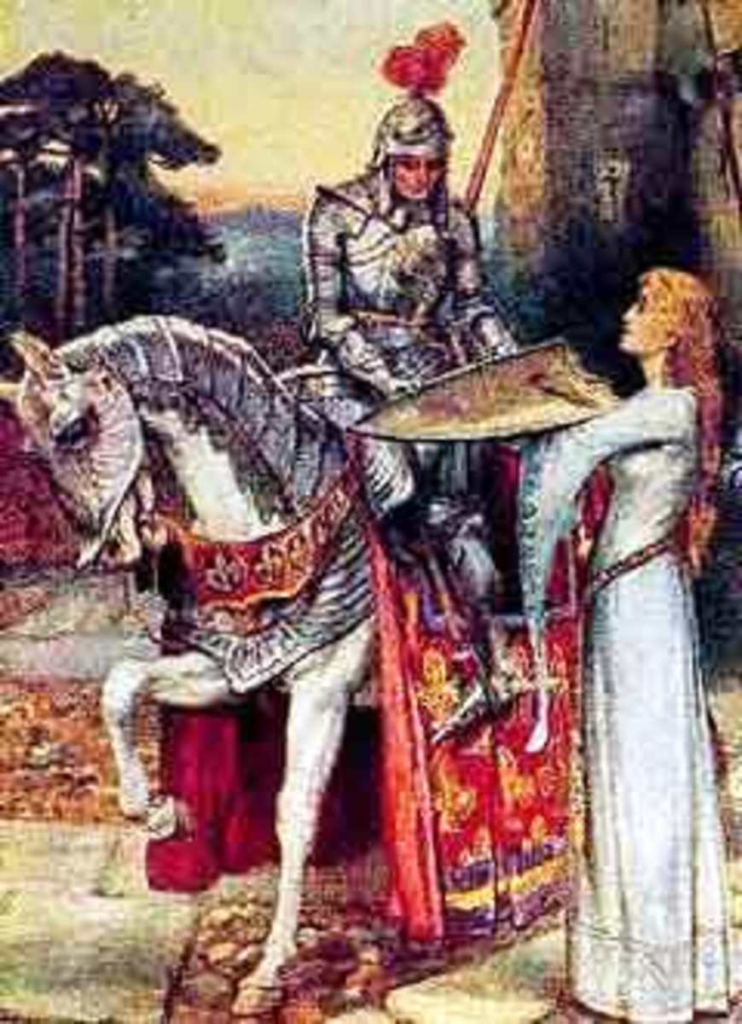
The quality of Christian humility lay at the root of chivalry. A chivalrous knight (the term chivalry comes from the old French word, chevalier, meaning “horseman”) humbled himself to all others in society. Thus he was bound by duties not only to his lord, his superior, but to those weaker than himself, particularly women, whose innocent virtue he was tasked to protect, and the poor, whose pathetic condition he was obliged to alleviate. One thinks of St. Martin of Tours, who famously cut off half of his military cloak to provide a naked man with clothing. To adopt a philosophy of individualism in which one rejected concern for others would have been unimaginable to the Christian knight.
One must keep in mind how unique this Christian notion of humility, and its related idea of chivalry, have been in world history. In the ancient pagan world for example, humility was considered a sign of weakness. Too, in many non-Christian modern societies, superiors are expected to be rude to inferiors, a way of keeping everyone in his proper place in society. The mighty in most places and times have boldly asserted their power as a way to maintain the status quo.
But Christian chivalry, [Edmund] Burke believed, “made power gentle” and served to “beautify and soften private society.” It harmonized human relations. Without it, society could only be held together by brute force and cold reason. Gone would be the warmth of considerate human relations, corrupted would be the morals of men, and all would be reduced to slaves.
These words by Stephen Klugewicz, editor of The Imaginative Conservative, do a good job of framing this year’s verse of the year. In Mark 10:45 we read,
For even the Son of Man came not to be served but to serve, and to give his life as a ransom for many.
Just before these words, our Lord said, “You know that those who are considered rulers of the Gentiles lord it over them, and their great ones exercise authority over them. But it shall not be so among you. But whoever would be great among you must be your servant, and whoever would be first among you must be slave of all.” And so Jesus Christ overturned a globally persistent pattern of human relations rooted in sinful man’s “brute force and cold reason,” a world where the mighty “boldly assert their power as a way to maintain the status quo.” By His death and resurrection, He inaugurated a new kingdom where humility reigns through love and service, where power is made gentle and serves to “beautify and soften private society.”
This is our vision for Providence Classical Christian School. We aspire to be a community where Christ-like service is exalted, where the selflessness of chivalry and the protection of the weak and innocent are the norm.
Come, Lord Jesus! May we imitate Him in His sacrificial service and lift one another up by our noble and mannerly mutual consideration. May we value what He values and show in ourselves the character of Christ and thus be the one the Lord spoke of in Isaiah 57:15 –
For thus says the One who is high and lifted up,
who inhabits eternity, whose name is Holy:
“I dwell in the high and holy place,
and also with him who is of a contrite and lowly spirit,
to revive the spirit of the lowly,
and to revive the heart of the contrite.”









